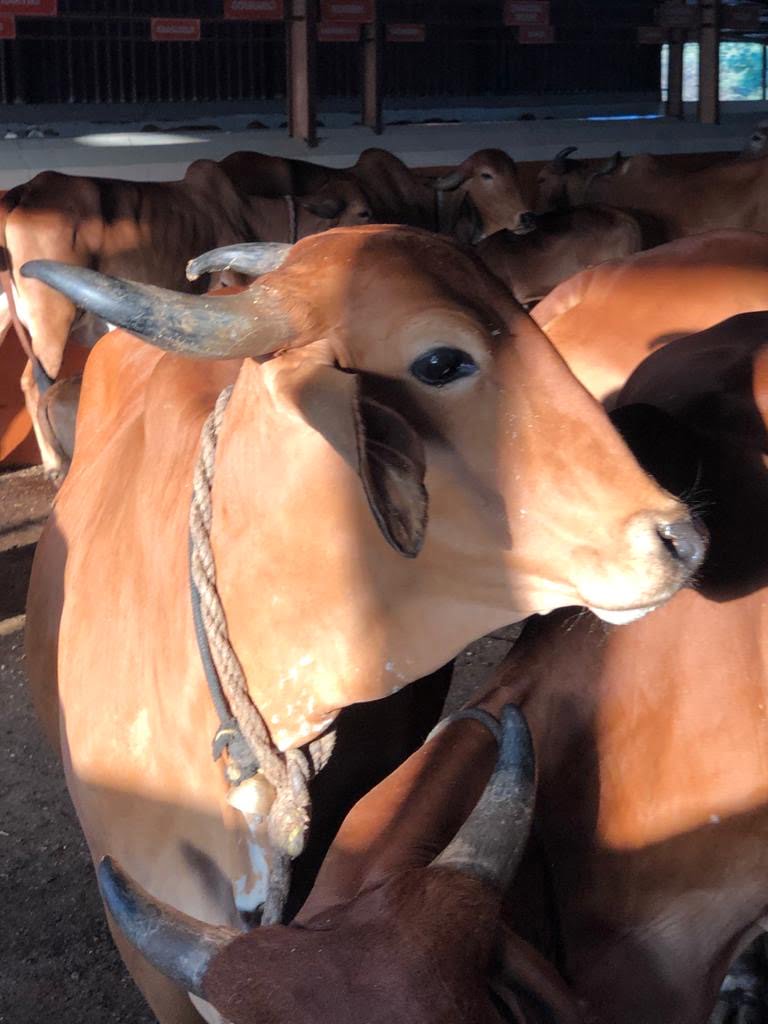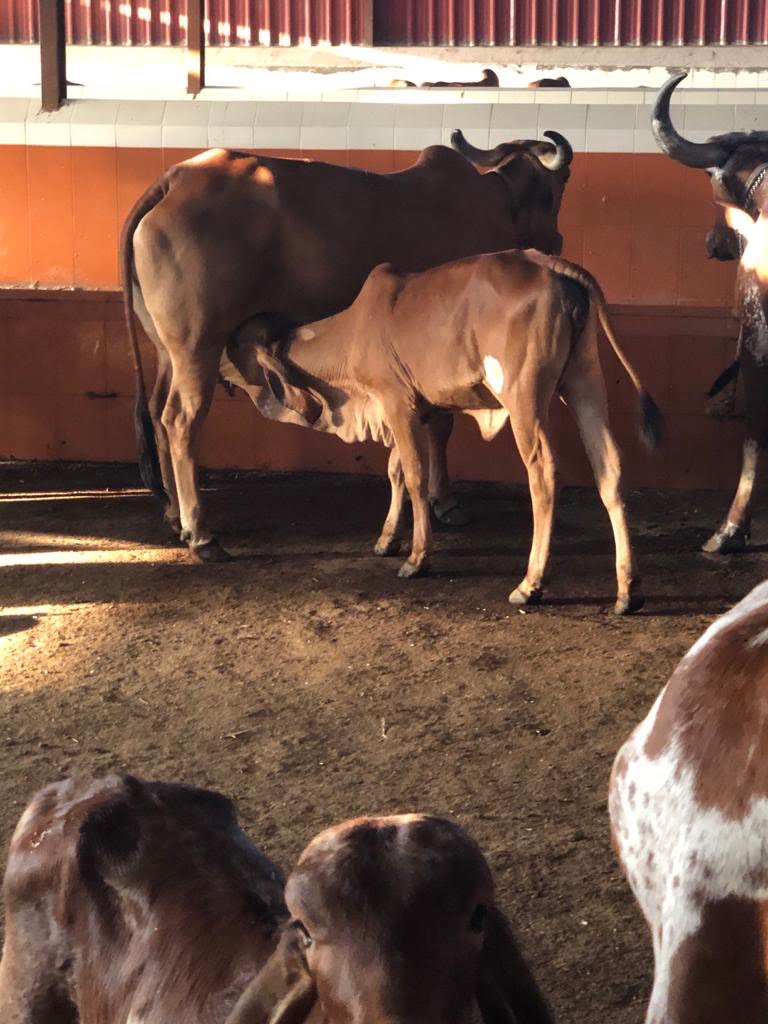Meet the Gir Family
As I write this, since more than fifty days I’ve been “locked down” at Nilachal Vedic Village (NVV), a small farm community some two hours’ drive north from Mumbai, in the state of Maharashtra very close to the Gujarat state border. One could think of a lot worse places to be confined during the present pandemic pandemonium. For me this extended stay has been an opportunity to observe and participate in the sort of “anticipatory community” I’ve written about in the final chapter of Cow Care in Hindu Animal Ethics.
A special feature of NVV is what I call “the Gir family”—an extended family of some two-hundred cows and bulls, calves and oxen, all of the particular breed of Bos indicus (Zebu)known as Gir (or Gyr). At present, thirty-four of the cows are lactating—collectively giving some 230 liters daily—being hand-milked by Dadaro and his four or five assistants. Much of this milk is delivered daily to the farm’s parent organization, ISKCON’s large ‘Hare Krishna Land’ temple in Mumbai’s upscale suburb, Juhu. The remainder is either processed into (very fragrant!) ghee for sale or used in the farm’s kitchen for a variety of preparations that are first “offered” to Lord Krishna in the farm’s modest, mud-floored temple. However much vegans might object to calling the dairy products of this farm “ahimsa”—nonviolent, the fact that the cows are cared for throughout their natural lives; their calves are allowed to drink their mothers’ milk every day (well, some of the milk, before the milkers take over); the cows are calf-bearing every two years (rather than annually, as in a typical commercial dairy); and the cows appear well cared-for and peaceful, to me these add up to the essential elements that qualify this particular goshala as an ahimsa dairy. This is not to say the arrangements here are ideal. Just how the economics of Nilachal Vedic Village works is not known to me (nor am I inclined to ask, being here as long-term “house guest”), though it is clearly far from being a self-sufficient system. Nor is there any program of engaging the oxen, as far as I can tell. What I can say is that the milk and milk products here are, well, heavenly in their rich taste. One can see why devotees of Krishna insist that Krishna, as the divine primordial cowherd, takes pleasure in the cows’ products even as he takes pleasure—according to the sacred texts—in caring for the cows.


